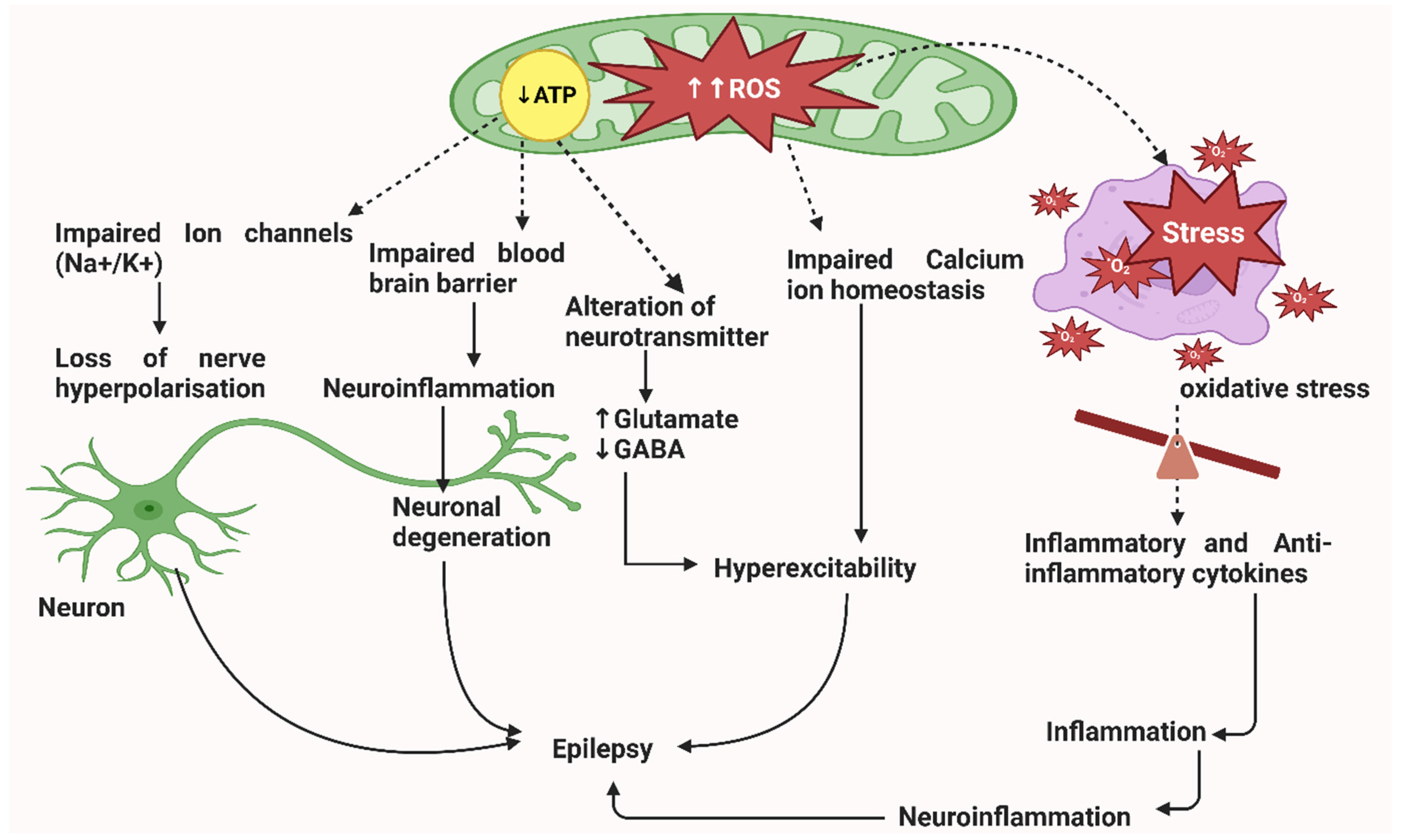Can Low Potassium Really Cause Trouble?
Let’s break the ice with something you probably don’t expect: missing a few bananas this week could matter more than you’d think—especially if you’re living with epilepsy. Sounds odd, right? But here’s the thing: when life gets busy and your diet falls a little short, potassium levels can quietly drop. And for those of us dealing with epilepsy, that drop is more than just a nutritional blip. Suddenly, there’s this hidden factor, hypokalemia, sneaking onto the playing field. And not everyone is talking about it.
You ever experience a random twitch, a wave of weakness, or even a weird little muscle cramp and brush it off? Most of us do. But, if you have seizures—or care for someone who does—these little flags matter. There’s a bigger conversation to be had about epilepsy and risk of hypokalemia, so let’s chat like friends and unravel what actually goes on. (I promise: no lectures, just real talk.)
How Potassium Messes (or Doesn’t) with Your Brain
So, why all the potassium drama? Your nerves and brain cells work a lot like that old string of Christmas lights: when everything’s balanced, the whole brain lights up the way it should. But take out a couple of bulbs—in this case, drop the potassium—and things get flickery. It’s not just about bananas and sports drinks; potassium underpins all those zappy little electrical messages that make your muscles flex, your thoughts fire up, and, yes, can be a piece of the seizure puzzle.

Does Low Potassium Cause Seizures For Real?
It’s tempting to say, “Low potassium, high seizure risk—case closed.” But hang on. The science is a little twisty here.
Based on research on epilepsy imitators and case reports about hypokalemia-induced abnormal movements, seizures themselves are rarely triggered directly by low potassium. In fact, most people with mild potassium dips are just tired, maybe a bit weak—no dramatic seizures out of nowhere. Yet, when potassium really plunges, especially alongside other issues (like heart rhythm problems or serious illness), things can get confusing. Movements might look like seizures, but it’s actually potassium derailing the heart and muscles, not your brain circuits throwing a fit according to a clinical case series.
I remember one friend—let’s call her Mia—who showed up to lunch looking gray and shaky. She has epilepsy. That day, it wasn’t one of her usual seizures, but she was weak, twitchy, and kept cramping up. Turns out, she’d been sick, lost a lot of fluids, and her potassium took a nosedive. She didn’t have a seizure, but the signs were close enough to scare us both. Hydration (and a big plate of roasted potatoes) got her back to normal remarkably fast.
Epilepsy + Electrolytes: A Risky Combo?
The link between epilepsy and risk of hypokalemia boils down to how both your brain and heart depend on these minerals. Severe drops in potassium can mess with heart rhythms, possibly cutting off oxygen to the brain and causing sudden fainting or “seizure-like” activity. Sometimes, doctors have trouble telling the two apart until tests come back. Yep, scary!
But here’s where it gets complicated. Research on Can high potassium cause seizures explains that while potassium swings contribute to brain excitability, they aren’t a magic switch for seizures by themselves according to studies from the Krembil Research Institute. For people with epilepsy, though, anything that heightens the brain’s excitability—like low potassium—means it’s worth paying attention.
Table: How Different Minerals Affect Seizure Risk
| Electrolyte | Low Levels May Trigger Seizures? | Main Symptoms |
|---|---|---|
| Sodium | Yes (common trigger) | Confusion, seizures, fatigue |
| Calcium | Yes | Muscle spasms, tingling, seizures |
| Potassium | Rarely | Muscle weakness, abnormal heart rhythms, rarely mimics seizures |
Key takeaway? If you (or a loved one) have epilepsy: sodium and calcium deserve as much attention as potassium. But potassium can sneak into the story in less obvious ways.
What Makes Potassium Dip in Epilepsy?
Okay, so we know it matters. But… why does potassium crash in the first place, especially for people with seizures? Here’s a little secret: it’s often not the epilepsy itself, but the treatment or other factors swirling around it. Some anti-seizure meds, like levetiracetam, have popped up in research as potential culprits. Real-world evidence hints that people taking levetiracetam might have about double the risk of developing low potassium compared to those on carbamazepine. That’s not to say everyone’s doomed, but it’s a heads-up: always worth a blood test or two according to a 2024 study in Drug Safety.
There’s also loss of potassium through vomiting, sweating (hello, marathon runners!), diarrhea, certain diuretics, and rare genetic quirks—like Gitelman syndrome, which loves to stir up trouble for some unlucky folks [see rare case studies]. And sometimes, it’s just a funky reaction between a mix of meds and your personal biology.
Story Break: The Coach and Her Race
Let me share something real. My cousin Sam—avid runner, epilepsy thriver—decided to run a hot summer half-marathon. She felt great, crushed her time, but that night she was so weak she couldn’t stand up to shower. Seizure? Nope. Emergency doc checked her labs and, sure enough, potassium was way down. She had lost a ton of electrolytes through sweat, hung tough all day, but her body was sending a subtle (okay, not-so-subtle) SOS. She recovered with fluids and potassium-rich snacks, plus a new love for coconut water. Lesson? These “wellness” activities are awesome, but if you have epilepsy, potassium is your unsung companion.
Could Meds Be a Double-Edged Sword?
Let’s be honest: managing epilepsy is enough of a balancing act without chasing after every mineral, right? But anti-seizure meds can add their own twist. Levetiracetam is widely used—it’s effective, convenient, but as mentioned earlier, it may just nudge potassium levels a bit lower, especially when starting or changing doses.
There are also stories of people who switched meds and then started experiencing weird, persistent tiredness or muscle issues—later traced back to their new regimen. Sound familiar? It might be time to check those electrolytes and chat with your care team. Extra nerd points for reading further into epilepsy and risk of hypokalemia if you love detail.
Table: Medication and Hypokalemia Risk
| Medication | Hypokalemia Risk | Why? |
|---|---|---|
| Levetiracetam | Medium | Possible effect on kidney excretion or cell uptake of potassium |
| Carbamazepine | Lower | Less impact on potassium handling |
| Lamotrigine | Minimal risk | Rarely reported issues with potassium |
If you’re thinking, “Does this mean I should worry every time I take my meds?”—absolutely not. But it’s one of those “knowledge is power” things that can help you and your doctor make even better choices together.
Spotting Trouble Early—Don’t Ignore the Clues
Here’s something we rarely say out loud: with epilepsy and risk of hypokalemia, it’s usually not thunder-and-lightning symptoms. It’s quiet. A little more fatigue. Twitchy muscles. Maybe a skipped heartbeat or two (which, let me say, is never fun). For most, that’s it. But with the “perfect storm”—illness, heat wave, new meds—the wheels can come off fast.
What to Actually Watch For
- Muscle weakness, fatigue, or feeling “heavy”
- Leg cramps that don’t quit, even when you’ve hydrated
- Palpitations or weird heartbeats. Never ignore these!
- New or strange movements (especially if different than your usual seizures)
- Worsening confusion or fainting spells—especially if you’re sick
Ring a bell? If any of these pop up in the context of a new med, illness, or after a hardcore sweat session—call your doc. Sometimes, all it takes is a basic blood test to set things straight. And if you’re looking for a nerdy reference point, the latest post on epilepsy and risk of hypokalemia gives more background and action steps.

Simple Fixes: How to Keep Potassium Happy (and Seizures at Bay)
This isn’t about panic. It’s about tiny tweaks that keep you steady. Potassium isn’t just bananas (though, seriously, bring on the bananas). Sweet potatoes, spinach, yogurt, avocados, and beans are heavy hitters. Toss a handful of dried apricots into your trail mix—works wonders, and no one will judge your snack game.
Easy Tips for Every Day
- Snack smart: Keep potassium-rich snacks handy for travel, outdoor stuff, or after workouts.
- Hydrate with intention: When you’re sick or sweating, grab electrolyte drinks—not just water.
- Check meds and supplements: Some can flush potassium; talk to your doc before changing anything up.
- Make testing regular: Bloodwork isn’t just bureaucracy. It can catch slow-burning issues before they matter.
If you’re a “what about too much potassium?” worrier (and who isn’t over something these days?), check out the perspective over at Can high potassium cause seizures. There’s a sweet spot with potassium, like all the good things in life.
Final Thoughts: It’s About Connection, Not Perfection
Okay, if you’ve stuck with me this far, you now know the what, why, and how of epilepsy and risk of hypokalemia—without falling asleep over a stack of textbooks. Here’s what I hope sticks with you: seizures and potassium are like dance partners—sometimes in step, sometimes just awkwardly on the same dance floor. You don’t need to micromanage every meal, but a little awareness can make a big difference.
Here’s your nudge: Take a breath, check in with your body, and if something doesn’t add up (new tiredness, weird cramps, changes with new meds), talk to your doctor. Add one potassium-rich snack to your day, or just bookmark that blood test. If you love reading deeper dives, the epilepsy and risk of hypokalemia blog is waiting with more tips. Real wins are built on tiny steps—like a new favorite smoothie or an honest chat with your care team. What’s one small tweak you’ll try this week?
Because whether you’re team banana, marathon runner, or just someone looking out for a friend, being better informed… that’s the first step toward living—and thriving—with epilepsy. And hey, if you’ve got a story or tip, let us know. We’re all in this together… potassium highs, lows, and all.























Leave a Reply
You must be logged in to post a comment.